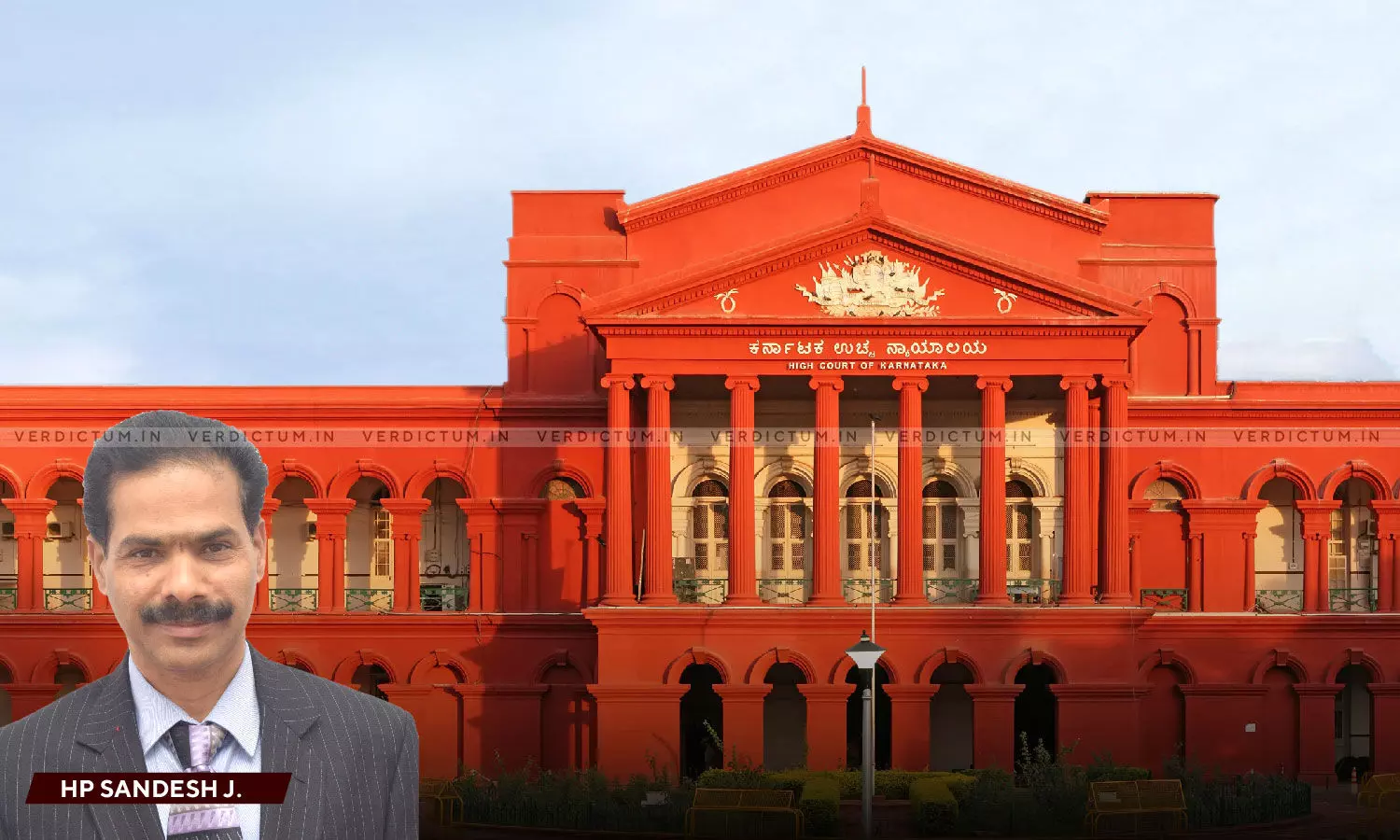
Award Passed By Lok Adalat Can Be Challenged By Third Party To Suit By Filing Suit For Declaration: Karnataka HC
 |
|The Karnataka High Court observed that a third party to a suit may challenge a settlement award passed by the Lok Adalat by way of filing a suit for declaration.
The Bench of Justice H.P. Sandesh observed “The judicial review is available to test the validity of the awards passed by the Lok Adalat on limited grounds, one of which when a party alleges that there was no settlement enabling an award being passed. Hence, it is clear that the judgment and award passed by the Lok Adalat can be challenged by a 3rd party to the suit by filing the suit for declaration and, in order to avoid multiplicity of proceeding and to put an end to the litigation once and for all, the best course open to petitioner was to approach jurisdiction civil Court for redressal.”
Advocate A Madhusudhana Rao appeared for the Appellant whereas Advocate Narasimha Prasad S.D. appeared for the Respondents.
The Plaintiff-Appellant sought relief of declaration, partition and possession of the suit properties. One late Nagappa was the father of Defendants-Respondents No. 1-3 and Defendant-Respondent No. 4 was the father of the Plaintiff. The Defendants also filed a suit for partition and separate possession of their shares and managed to settle the suit in Lok Adalat after influencing the father of the Plaintiff. It was alleged that the matter was compromised and a preliminary decree was passed.
During the pendency of the suit, the father of the plaintiff passed away. The trial court accepted the contention that the suit properties are ancestral properties but did not accept the contention that those properties were not divided and concluded that the Plaintiff was entitled to 1⁄2 share in the property of his father and not to the entire property of the suit schedule properties.
The Plaintiff, therefore, filed the Second Appeal under Section 100 of the Code of Civil Procedure, 1908, against the judgment and decree passed by the District Judge confirming the judgment and decree passed by the Senior Civil Judge.
The Court raised the question of whether a separate independent suit was maintainable when the Plaintiff was not a party to the said compromise, based on which a preliminary decree was drawn up.
The Court said, “The plaintiff is not a party to the compromise but his father was a party to the compromise and there cannot be any writ proceedings under Article 226 of Constitution and only fraud and misrepresentation is played while getting the decree. A 3rd party can file a suit for adjudication seeking the relief of declaration. Admittedly, the plaintiff is not a party to the compromise,...Even father of the plaintiff also not challenged the same, alleging fraud and misrepresentation and only son had filed the suit after drawing of preliminary decree and final decree. The Courts below were not right in dismissing the suit on the ground that compromise was recorded, a separate suit is not maintainable notwithstanding the fact that plaintiff was not a party to the said compromise.”
The Court further observed that the lower courts had not committed an error as the Plaintiff could not claim 1⁄2 share in the entire property and he was entitled for 1⁄2 share in the property of his father since he was the only son of his father. It also noted that the fraud and misrepresentation as contended by the Plaintiff was not established.
The Court concluded that both the Courts have not committed an error in not entertaining the suit as the same is in accordance with the law considering the question of fact and law, and the law of Succession. Defendants No.1 to 3 were also coparceners given the advent of the new amendment to the Hindu Succession Act. They were entitled to equal share along with the father of the plaintiff and the same is also by the law.
Accordingly, the Court dismissed the second appeal.
Cause Title: Sri N Umesha v. Smt. Bhagyamma@Bhagamma and Ors.
Appearances:
Appellant: Advocate A Madhusudhana Rao
Respondents: Advocates Narasimha Prasad S.D. and Chandrashekhar P Patil.